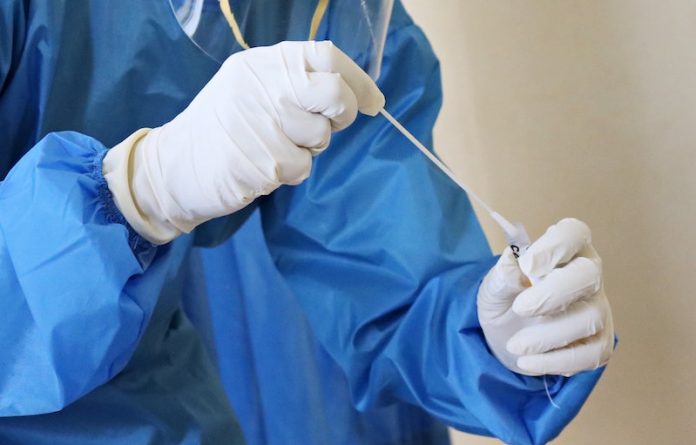
In a study from Linköping University, scientists found the immune cells of patients who received hospital care for COVID-19 early in the pandemic were still affected six months later.
The finding suggests that infection by the SARS-CoV-2 virus leaves strong effects long after the patient is symptom-free.
Several types of cells are important when the immune system starts to combat the SARS-CoV-2 virus.
Some white blood cells, B cells, form antibodies that recognize and bind to particular parts of the virus, while several types of T cells help to kill infected cells.
In the current study, researchers at Linköping University have looked at whether a severe COVID-19 infection has long-term effects on the body’s immune cells.
They looked at 46 people with COVID-19 who had received care at Vrinnevi Hospital in Norrköping, and 31 healthy people.
The researchers analyzed blood samples taken from the patients when admitted to the hospital, and taken 2 weeks, 6 weeks and 6-8 months later.
They not only looked at the properties of the virus-specific T cells, but also examined whether the disease had had a general effect on all T cells.
The researchers found that severe COVID-19 infection has long-lasting negative effects on the immune system.
They found the immune system was affected pretty badly when people are in the hospital sick with COVID, but they did not anticipate that the effects would persist as long as 7-8 months later.
The effects on the T cells of the immune system are interesting and mixed. Some of them are still activated long after the disease episode, while others are ‘fatigued’ and cannot function normally.
The team says all the patients in the study developed antibodies against SARS-CoV-2. The levels of these antibodies started to fall after six months.
If you care about COVID, please read studies about why smokers have a lower risk of COVID-19, and common anti-inflammatory drugs may prevent COVID-19 deaths.
For more information about COVID, please see recent studies about the cause of deadly organ damage in COVID-19, and results showing this drug duo could treat COVID-19 effectively.
The study was conducted by Francis Hopkins et al and published in Frontiers in Immunology.
Copyright © 2022 Knowridge Science Report. All rights reserved.



